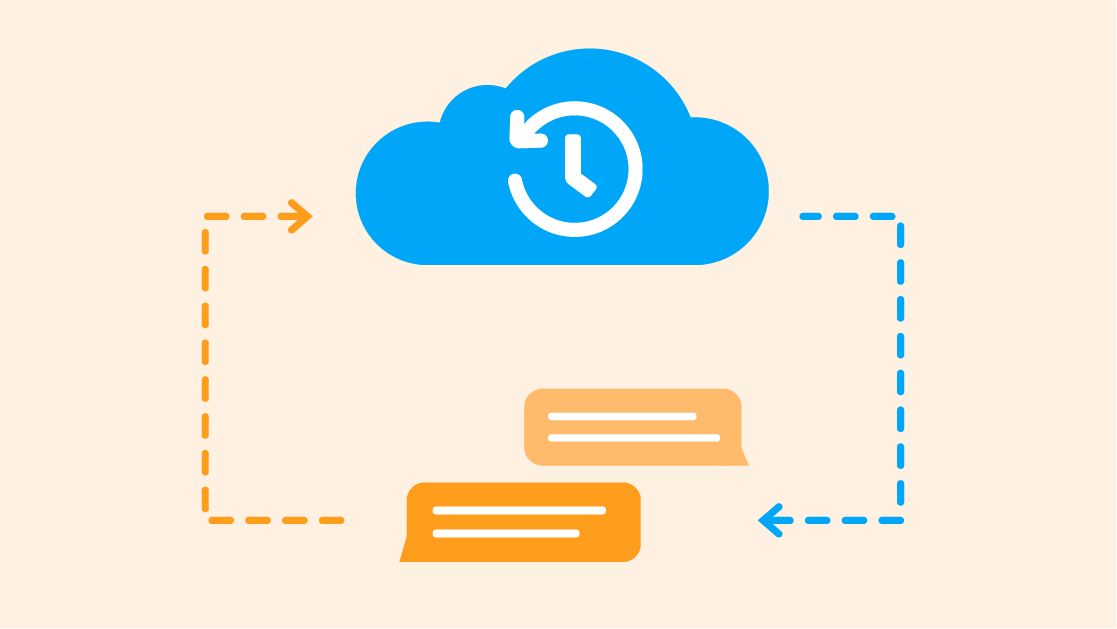Resilient Backup Solution For Owncloud Case Studies
Data is now the lifeblood of businesses in the modern digital age. Losing any of this crucial information, including customer, financial, and operational data, can have dire repercussions. Small businesses require a dependable, secure backup option that can effectively protect their data because of this. Small businesses can benefit greatly from cloud-based backup because it offers flexibility, scalability, and comfort.
- Recognizing Cloud-based Backup
- Benefits of Small Businesses ' Cloud-based Backup
- Cloud-based backup solutions' security features
- Picking the best Cloud-based Backup Service
- Implementing Cloud-based Backup for Your small business: Steps
- Automated Backup vs. Manual Backup: Which is Better?
- Using cloud-based backup to reduce downtime
- Using a cloud-based backup to ensure data compliance
- Using a cloud-based backup to access and restore data
- Disaster recovery planning using cloud-based backup
- Comparing cloud-based backup to on-premise backup solutions
- Cost-effectiveness and Scalability of Cloud-based Backup
- Overcoming Common Obstacles in the Implementation of Cloud-based Backup

Understanding Cloud-based Backup
The term" cloud-based backup" describes the act of storing data on remote servers that can be accessed online. Businesses can securely store and access their data whenever and wherever they want, as opposed to relying on physical backup devices like hard drives or tapes. Hardware failure, loss, and theft are all eliminated as a result.
Resilient Secured Backup Disadvantages
Advantages of Cloud-based Backup for Small Businesses
For small businesses, cloud-based backup has a number of benefits. It offers automatic backups, guaranteeing ongoing data protection without the need for human intervention. Additionally, cloud-based backup enables simple scalability, allowing you to expand your storage capacity as your company expands. Additionally, it lowers the price of hardware upgrade and maintenance.
Cloud-based backup solutions' security features
To protect your data, dependable cloud-based backup solutions provide strong security features. To make sure that only authorized people can access it, these include encryption both during transit and at rest. Multi-factor authentication is one example of an advanced authentication technique that adds a second layer of security. To ensure data integrity, regular audits and compliance certifications are also required - Mysql Server.
Cross-platform Best Encrypted Cloud Backup Performance Evaluation
Choosing the best Cloud-based Backup Service
Consider factors like reputation, dependability, and customer support when choosing a cloud-based backup provider. Find service providers who have a history of uptime and data security. To comprehend their dedication to data recovery and restoration, evaluate their service level agreements ( Slas ). To find a solution that meets your company's needs, evaluate their pricing models and scalability options as well.
How to set up Cloud-based Backup for Your small business

There are several steps involved in implementing cloud-based backup. First, thoroughly evaluate your data storage needs and pinpoint important data that requires backup. Next, select a reliable cloud-based backup service provider and work out an agreement for the service. Choose suitable retention policies and set up backup schedules. To ensure data recoverability, monitor and test your backups on a regular basis.
Modern Data Backup Service Uk Secrets
Automated Backup vs. Manual Backup: Which is Better?
Automated backups provided by cloud-based backup systems are much more dependable than manual ones. Human error is reduced by automated backups, which also guarantee consistent data protection without manual intervention. It reduces the likelihood of data loss brought on by forgetfulness or negligence while saving time and resources.
Using cloud-based backup to cut down on downtime
The ability to minimize downtime during data loss events is one of the key benefits of cloud-based backup. Businesses can quickly recover lost data and resume operations with regular backups kept in the cloud. The effect on productivity and customer satisfaction is reduced as a result. The downtime will decrease as the data restoration progresses.
Comprehensive Backup Solution For Corporate For the Modern Era
Using a cloud-based backup to ensure data compliance
Depending on their industry and location, businesses are required to abide by a variety of data protection laws. By providing access controls, audit logs, and data encryption, cloud-based backup solutions can assist in meeting these compliance requirements. To avoid legal repercussions and safeguard sensitive customer information, it is essential to choose a provider who abides by pertinent industry standards.
Data access and recovery from a cloud-based backup
Accessing and restoring data whenever necessary is made simple by cloud-based backup solutions. Anywhere with an internet connection, authorized users can access files and folders. Businesses can quickly recover their crucial data in the event of accidental deletion, hardware failure, or cyberattacks thanks to the data restoration process, which is typically simple.
Cutting-edge Backup Software For Onedrive Full Analysis
Disaster recovery planning with cloud-based backup - Backup Entire Hard Drive To Cloud
Disaster recovery planning depends heavily on cloud-based backup. Businesses can safeguard their data from physical disasters like theft, fires, and floods by keeping backups off-site in secure data centers. Businesses can quickly recover their crucial information and resume operations in the event of a disaster thanks to the cloud-based backup.
Compared to conventional on-premise backup solutions, cloud-based backup has a number of advantages. Cloud-based backup eliminates the need for pricey hardware investments and ongoing maintenance. In comparison to on-premise solutions, which are constrained by physical infrastructure, cloud-based backup offers greater flexibility, scalability, and accessibility.
High-speed Create Your Own Cloud Backup Service Future Outlook
Scalability and cost-effectiveness of cloud-based backup
Businesses can scale up or down their storage capacity with the help of cloud-based backup solutions because they are so scalable. Small businesses can afford it because of its scalability, which ensures that they only pay for the storage they need. Additionally, cloud-based backup makes it unnecessary to buy extra hardware or spend money on It infrastructure.
Getting rid of Common Problems With Cloud-based Backup Implementation
While cloud-based backup has many advantages, small businesses may find it difficult to implement. Large data volumes, potential bandwidth restrictions during peak hours, and the requirement for consistent internet connectivity all contribute to slow initial backups. These difficulties, however, can be reduced by careful planning, monitoring, and backup provider selection.
High-speed Best Offsite Data Backup Solution For Small Business In Detail
Important Notes: Backup Solution For Idrive.
Small businesses can have flexibility, scalability, and peace my blog of mind thanks to cloud-based backup.
- Data protection in cloud-based backup solutions depends on security features like encryption and authentication.
For data protection, it's essential to pick a reputable and trustworthy cloud-based backup provider.
- Data assessment, provider selection, configuration, and monitoring are all components of cloud-based backup implementation.
- Cloud-based solutions' automated backups are more dependable than manual ones.
- Cloud-based backup makes it easier to quickly restore data and reduces downtime during data loss events.
- Security measures used in cloud-based backups can be used to comply with data protection regulations.
- Cloud-based backup makes it simple to access and restore data from any internet-connected location.
- Offsite backups offered by cloud-based solutions improve disaster recovery planning.
- Cost-effectiveness and scalability are advantages of cloud-based backup over on-premise solutions.
Businesses can scale cloud-based backup so they only need to pay for the storage they require.
- With careful planning and selecting the right provider, common obstacles to implementing cloud-based backup can be overcome.
For small businesses, data loss can have serious repercussions. You can safeguard your sensitive data and guarantee business continuity with cloud-based backup.
Key Takeaways or a related phrase:
-cloud-based backup reduces the risk of loss and ensures data protection.
- Flexible and scalable cloud-based backup solutions are advantageous for small businesses.
- Data integrity is guaranteed by security features like encryption and authentication.
- For trustworthy cloud-based backup services, picking a reputable provider is crucial.
Data assessment, provider choice, and configuration are appropriate implementation steps.
- Automated backups save time and lower the possibility of human error.
- Cloud-based backup speeds up data restoration and reduces downtime.
- Cloud-based backup enables compliance with data protection regulations.
Through cloud-based backup solutions, data can be easily accessed and restored.
- Offsite storage for cloud-based backups improves disaster recovery planning.
- In terms of cost and scalability, cloud-based backup offers advantages over on-premise solutions.
Scalability guarantees cost-effectiveness in the implementation of cloud-based backups.
- With the right planning, difficulties like slow initial backups can be overcome.
- A successful cloud-based backup implementation depends on reliable internet connectivity.
